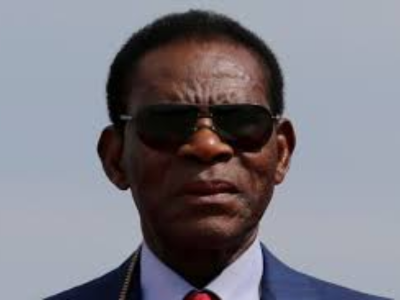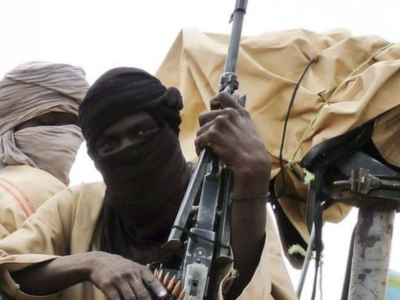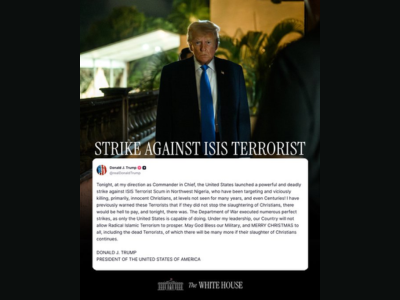Cameroon Separatists Enforce Lockdown Amid Deadly Clashes in Anglophone Regions
- by Admin.
- Sep 10, 2025

Credit:
Armed separatists in Cameroon's Northwest and Southwest regions imposed a month-long lockdown on Monday, sparking weekend clashes that killed at least nine soldiers and heightened tensions ahead of school reopenings and the October presidential election.
The move, announced on social media by separatist leaders, has emptied streets in key cities like Bamenda, leaving residents fearful and daily life at a standstill in areas long scarred by the push for an independent "Ambazonia." The lockdown, set to run through mid-October, aims to halt the restart of schools and disrupt voting in the presidential poll, according to separatist statements.
In Bamenda, the Northwest regional capital, a local resident described the scene to Xinhua by phone: "There is nobody on the streets. The streets are all deserted. Places are closed and almost all activities are not operational. People are just afraid because of the lockdown."
Security sources confirmed the clashes occurred over the weekend as fighters sought to enforce the restrictions, with additional troops now patrolling day and night to maintain order. Government officials in the regions responded on Sunday by pledging "tight security" and encouraging normal activities, but the lockdown has deepened the divide in a conflict that erupted in 2017.
Separatists, fighting for independence from the Francophone-majority government, view the measures as essential to their cause, rooted in grievances over cultural and political marginalization of the English-speaking minority, which makes up about 20% of Cameroon's 28 million people. The government, however, labels the groups as "terrorists" and has rejected secession, offering limited decentralization reforms that critics say fall short.
The broader Anglophone crisis has claimed over 6,500 lives since 2016, displacing more than 500,000 people internally and leaving 2 million in need of aid, per UN estimates. Separatists have frequently used lockdowns—known locally as "ghost towns"—to pressure Yaoundé, often enforcing them through threats and violence against civilians, schools, and businesses. This tactic has kept hundreds of thousands of children out of classrooms, with at least 2,245 schools shuttered due to attacks and boycotts.
On the government side, security forces have been accused of extrajudicial killings, village burnings, and arbitrary arrests, drawing international concern over atrocities from both factions. Recent developments underscore the stakes. In August, separatists announced the lockdown to coincide with election preparations, following ambushes that killed soldiers in Boyo and Donga-Mantung divisions. The U.S. indicted Ambazonia leaders in Minnesota last week for funding the insurgency, while Norway arrested separatist figure Lucas Ayaba Cho on crimes against humanity charges—moves highlighting global scrutiny.
As President Paul Biya, 92, seeks re-election, the conflict tests national stability, with analysts warning of a "bloody stalemate" where neither side holds the upper hand. For now, the lockdown traps communities between armed groups and the military, amplifying fears of renewed violence and humanitarian fallout.













0 Comment(s)